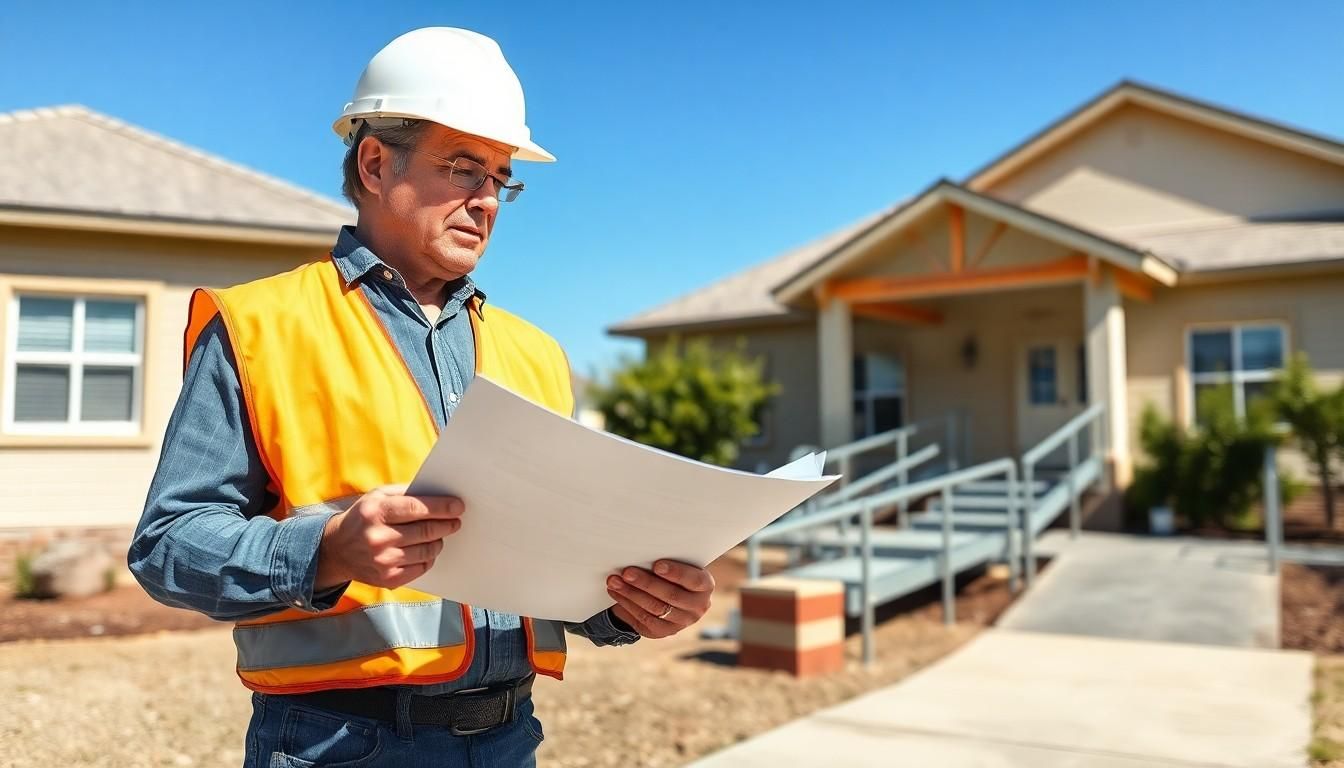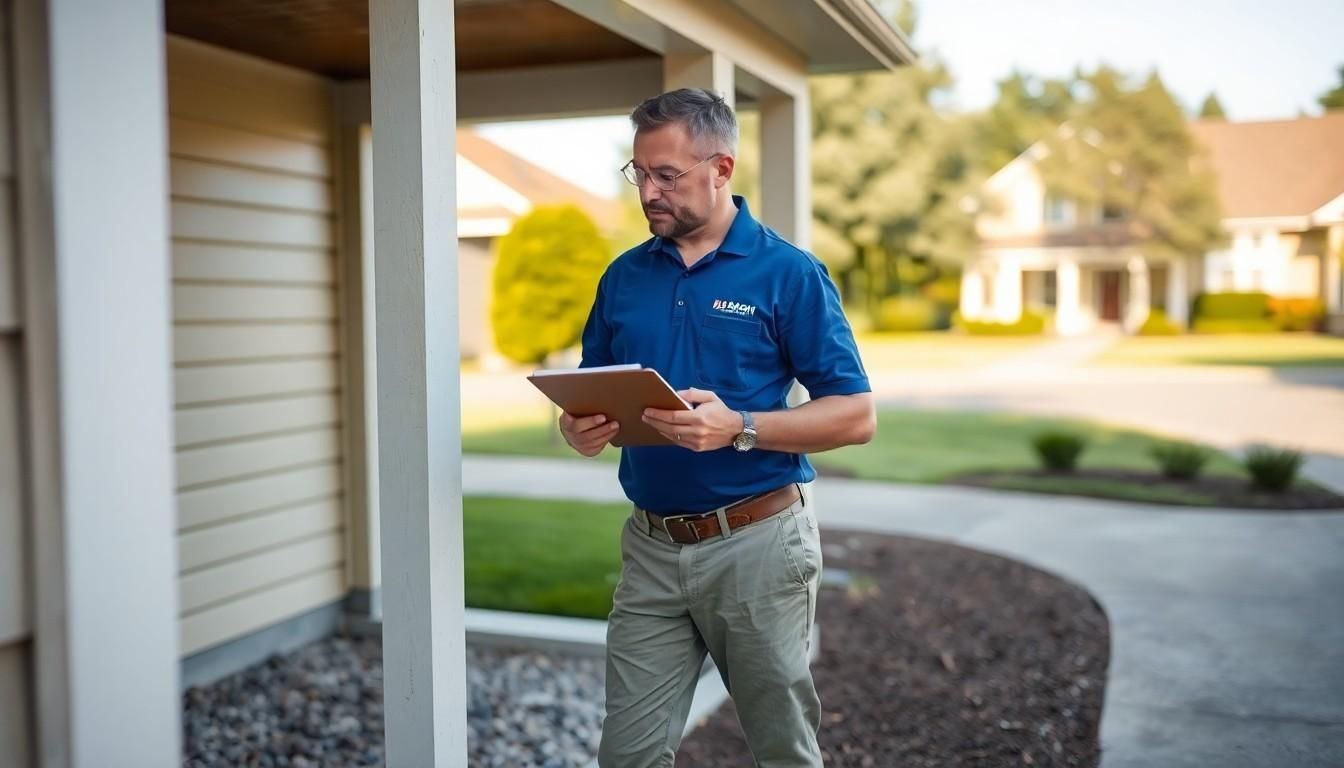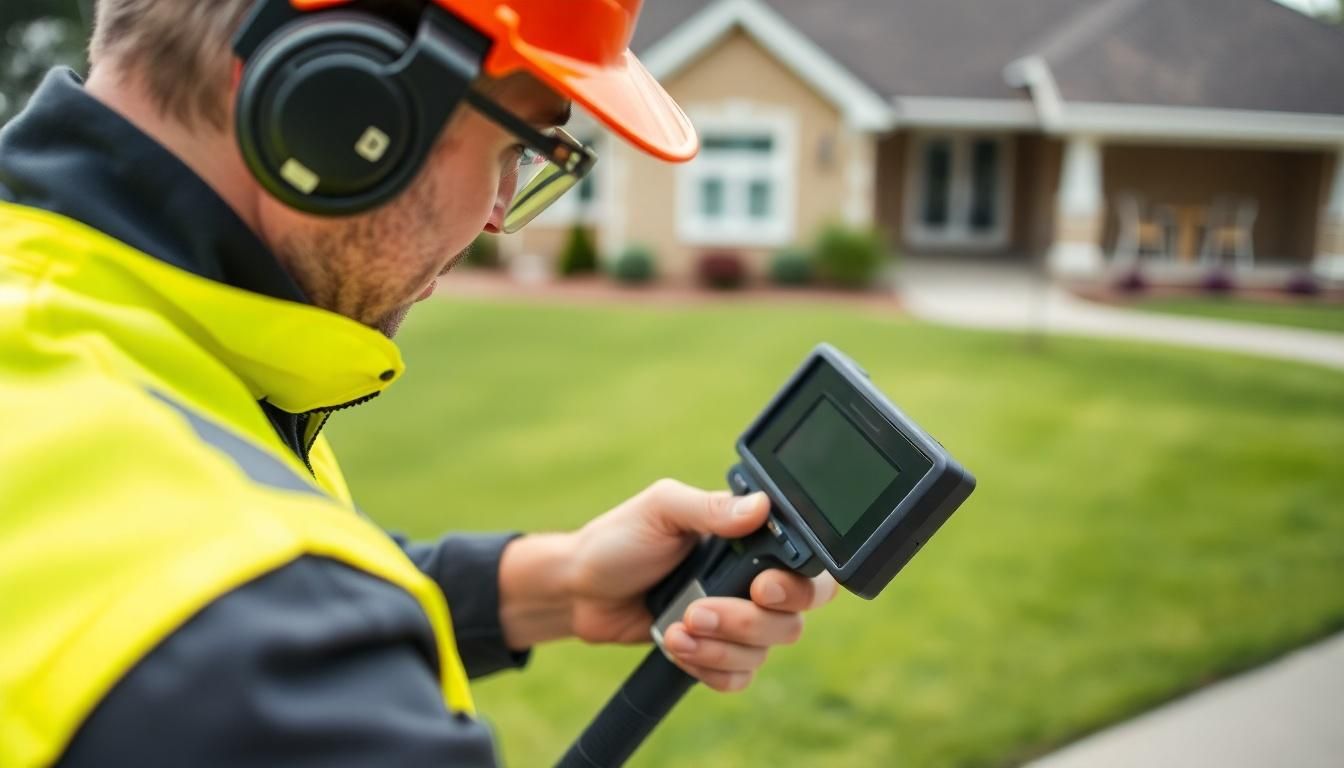Why You Should Be Inspecting Your Appliances and Systems Regularly
- Importance of Inspections: Prevent breakdowns, safety risks (electric fires, gas leaks), and reduce utility bills via energy efficiency.
- Key Appliances: HVAC systems and water heaters are critical; kitchen appliances like refrigerators and ovens also require checks for safety and efficiency.
- Inspection Frequency: Seasonal checks (spring, summer, fall, winter) and annual inspections boost safety and performance.
- DIY vs. Professionals: DIY inspections are cost-effective but can miss critical issues; professionals offer thorough evaluations.
- Essential Tools: Multimeters, infrared thermometers, moisture meters, along with basic tools aid inspections.
- Checklists: Ensure thoroughness, consistency, and documentation during inspections.
What if missing an appliance inspection could lead to a costly disaster? Routine inspections of home appliances and systems are more than mere upkeep; they are critical in maintaining safety and efficiency in your living space.
These checks help prevent unexpected breakdowns that can result in expensive repairs. Equally crucial, they identify safety hazards like electrical fires or gas leaks, fostering a secure home environment. Let's look into why regular inspections are integral in ensuring optimal performance, extending the lifespan of appliances, and safeguarding your investment effectively.
Reasons Behind the Importance of Inspecting Appliances and Systems
1. Avoiding unexpected breakdowns and safety risks.
By regularly checking your appliances, you can detect potential hazards like electrical fires or gas leaks before they turn into serious issues. These safety checks not only protect residents but also prevent expensive repairs from sudden equipment failures. Spotting hazards early during these inspections significantly reduces the chance of accidents, promoting a safer home environment for everyone.
2. Energy efficiency
Regular checks help maximize appliance performance, which lowers utility bills. Efficient appliances use less energy, saving money on electricity and water costs. For instance, making sure HVAC systems and water heaters work properly can lead to big savings by cutting energy waste. These inspections are vital for keeping appliances both efficient and economical.
3. Extends the lifespan of appliances and systems
Finding small issues early allows for preventative maintenance, which helps avoid buying replacements too soon. This proactive approach saves money and ensures continuous use and reliability. Regular maintenance is essential to keep systems working longer and maintaining their value. Therefore, frequent home inspections are essential for preserving your home’s overall value and operation.
Key Systems and Appliances for Regular Inspections

1. HVAC systems and water heaters: These systems ensure comfort and supply hot water, making their efficient operation crucial. Routine HVAC checks help ensure the heating and cooling systems work correctly, lowering the risk of breakdowns during peak times. Water heater checks are just as important since leaks or inefficiencies can cause significant damage and waste energy.
2. Kitchen appliances: Appliances like refrigerators, ovens, and dishwashers are essential for daily life. Their failure can cause inconvenience and extra costs. By inspecting these appliances, you can find issues like faulty wiring, leaks, or inefficient operation before they worsen. Ensuring proper ventilation and cleaning filters are crucial tasks that not only improve efficiency but also make the kitchen safer.
To streamline inspections, homeowners should follow practical maintenance tasks such as:
- Cleaning HVAC air filters monthly or as recommended.
- Checking water heaters annually for leaks and sediment buildup.
- Inspecting seals and gaskets for wear on kitchen appliances.
- Ensuring proper ventilation around appliances to prevent overheating.
- Testing smoke and carbon monoxide detectors regularly.
DIY Tips vs. Hiring Professional Inspectors for Appliance and System Checks
DIY inspections offer a cost-effective way for homeowners to monitor their appliances and systems. By performing checks themselves, homeowners can spot minor issues early, addressing them before they become major problems. This hands-on approach saves money on professional fees and helps homeowners understand their systems better.
Regular DIY checks might include tasks like examining refrigerator seals, testing smoke detectors, or cleaning HVAC filters. These routine checks prevent unexpected breakdowns, ensuring appliances run smoothly and safely.
Hiring professional inspectors brings expertise that DIY inspections might lack. Professionals are trained to spot potential safety issues related to electrical, structural, or plumbing systems that homeowners might miss. They provide thorough evaluations, offering peace of mind that everything is in good working order.
Additionally, being present during professional inspections allows homeowners to ask questions and get advice on system maintenance. This insight can be vital for preventing future issues and optimizing appliance performance and lifespan.
Seasonal and Scheduled Inspections: Keeping Your Home Safe Year-Round

Seasonal inspections are vital for maintaining home safety and efficiency. Checking appliances before hot summer days ensures they’re in top working condition, reducing fire hazard risks. This proactive approach helps prevent accidents and prepares systems like HVAC units for increased demand. Seasonal checks allow for timely repairs of issues like worn-out parts, which could otherwise lead to expensive emergencies.
- Spring: Check HVAC systems for efficiency and replace air filters.
- Summer: Inspect cooling systems and clean vents.
- Fall: Test smoke detectors and carbon monoxide alarms.
- Winter: Examine heating systems and insulate pipes.
- Annually: Conduct a appliance and plumbing system check.
Tools and Checklists for Effective Appliance and System Inspections
Successful inspections rely on tools designed to find potential issues efficiently. Essential tools include:
- Multimeters for checking electrical properties,
- Infrared thermometers for spotting temperature anomalies, and
- Moisture meters for detecting water leaks.
These tools provide crucial insights into appliance status, allowing inspectors to diagnose problems accurately. Additionally, carrying basic tools like screwdrivers, flashlights, and inspection mirrors ensures thorough access to appliance components for a complete system evaluation.
Checklists can also play an important role in your inspections as they act as systematic guides for inspecting appliances and systems, ensuring no detail is overlooked. Creating detailed checklists tailored to specific appliances or systems helps maintain consistency and thoroughness.
- Check for frayed or exposed wiring in electrical appliances.
- Inspect seals and gaskets for wear in refrigerators and ovens.
- Test smoke detectors and carbon monoxide alarms for proper function.
- Look for rust or corrosion on metal parts.
- Listen for unusual noises or vibrations indicating mechanical issues.
By spotting issues early, homeowners can perform necessary maintenance before problems grow, ensuring efficient and safe operation of household systems.
Final Words
Regular inspection of appliances and systems plays an essential role in safeguarding property investments. By mitigating potential breakdowns and preventing safety hazards, inspections, including safety and home inspections, fortify a safer living space.
Whether opting for DIY methods or professional services, consistent monitoring aligns with the primary objective—elevating property safety and efficiency.
FAQ
Why is it important to inspect your equipment?
Regular equipment inspections are crucial to prevent unexpected breakdowns, identify safety hazards, and enhance operational efficiency. These checks can extend the lifespan of the equipment, resulting in cost savings and improved safety.
What is the importance of inspection?
Inspections ensure equipment operates safely and efficiently, helping to prevent potential accidents and breakdowns. They also support compliance with safety regulations and can lead to financial savings through timely maintenance.
What are the three purposes of inspection?
The three main purposes of inspection are to identify safety hazards, maintain operational efficiency, and comply with regulatory standards. These help minimize risks, reduce repair costs, and maintain equipment performance.
What is the importance of inspecting and cleaning tools and equipment regularly?
Regularly inspecting and cleaning tools and equipment helps prevent unexpected failures and inefficiencies. This maintenance routine can reduce safety hazards, extend equipment life, and improve performance, leading to better operational outcomes.











